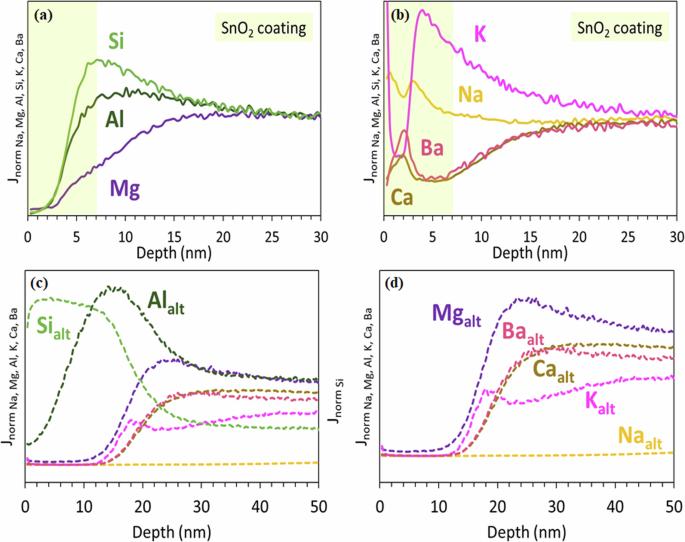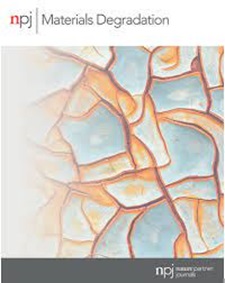商用玻璃的表面处理:对铅、钡和硼保留的持久影响
IF 7.6
2区 材料科学
Q1 MATERIALS SCIENCE, MULTIDISCIPLINARY
引用次数: 0
摘要
玻璃的耐久性是受表面处理(如涂层或化学侵蚀)影响的特性之一。这些处理方法可用于减少玻璃中可能含有的有毒元素在溶液中的释放量。我们选择了五种表面处理方法:三种不同的涂层(SnO2、TiO2、SiO2)和两种酸性侵蚀(SO2 脱醛和酸性抛光)。这些处理对五种玻璃成分(钠钙玻璃、硼硅酸盐玻璃、硅酸钡玻璃、蛋白石玻璃和铅晶玻璃)进行。通过模拟饮料或食品容器加速老化条件的单一方案(醋酸 4%,70 °C),研究了它们对改变速率和机制的影响。1.3 年收集的数据显示,除酸性抛光外,所有处理方法都能显著减少铅的沥滤。二氧化硫脱醛法的降低率最高,同时还通过减少碱的扩散对钡的保留产生了有利影响。本文章由计算机程序翻译,如有差异,请以英文原文为准。

Surface treatments on commercial glasses: durable impact on the retention of lead, barium and boron
Glass durability is one of the properties that can be affected by surface treatments such as coatings or chemical attacks. These treatments can be used to reduce the quantities of potentially toxic elements contained in glass that may be released in solution. Five surface treatments were selected: three different coatings (SnO2, TiO2, SiO2) and two acidic attacks (SO2 dealkalization and acid polishing). These treatments were performed on five glass compositions (soda-lime, borosilicate, barium silicate, opal, and lead crystal). Their effects on alteration rates and mechanisms were investigated through a single protocol (acetic acid 4%, 70 °C) simulating accelerated aging conditions for containers of beverages or food. The data collected over 1.3 years showed significant reduction of lead leaching with all treatments except acid polishing. The best reduction factor was obtained with SO2 dealkalization, which also demonstrated beneficial effects towards the retention of Ba by reducing the diffusion of alkalis.
求助全文
通过发布文献求助,成功后即可免费获取论文全文。
去求助
来源期刊

npj Materials Degradation
MATERIALS SCIENCE, MULTIDISCIPLINARY-
CiteScore
7.80
自引率
7.80%
发文量
86
审稿时长
6 weeks
期刊介绍:
npj Materials Degradation considers basic and applied research that explores all aspects of the degradation of metallic and non-metallic materials. The journal broadly defines ‘materials degradation’ as a reduction in the ability of a material to perform its task in-service as a result of environmental exposure.
The journal covers a broad range of topics including but not limited to:
-Degradation of metals, glasses, minerals, polymers, ceramics, cements and composites in natural and engineered environments, as a result of various stimuli
-Computational and experimental studies of degradation mechanisms and kinetics
-Characterization of degradation by traditional and emerging techniques
-New approaches and technologies for enhancing resistance to degradation
-Inspection and monitoring techniques for materials in-service, such as sensing technologies
 求助内容:
求助内容: 应助结果提醒方式:
应助结果提醒方式:


